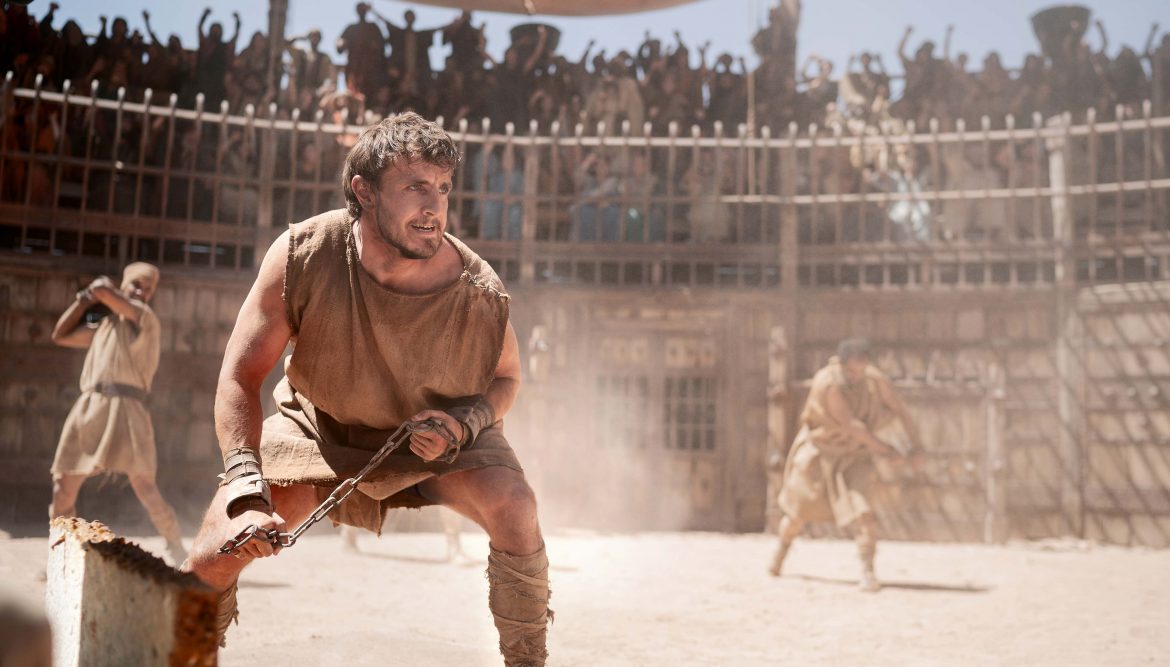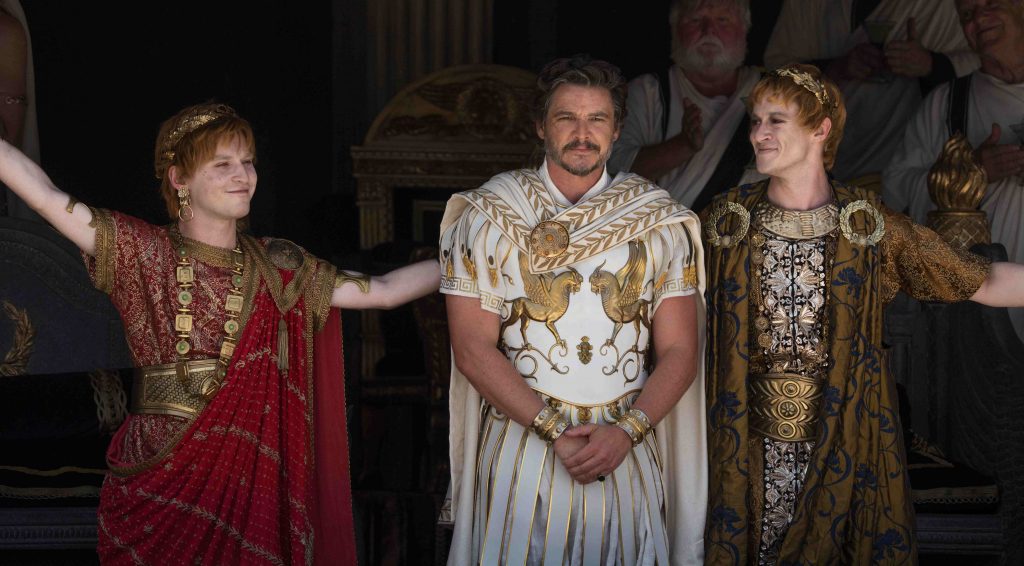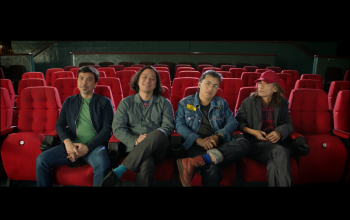Why do we have a sequel to Gladiator? Nostalgia. The film industry has been riding the tremendous rise of nostalgia since the start of the post-pandemic world. From reviving the early 2000s fashion trend to electing questionable but charismatic populist leaders, people are now clinging to the ideal picture of the past or anything, including movies, that would remind them of the pre-pandemic and pre-neoliberal world. But in Gladiator II, returning director Ridley Scott grabbed our nostalgia cravings, squashed the fantasy in it, and nailed a reminder that our present is still sick with perennial societal diseases.
To be completely honest, period films are not my cup of tea. I struggle to connect with their world-building because of the lack or absence of contemporary technology, clothing choices, and speaking styles. But I remember loving the first Gladiator starring Russel Crowe as Roman general Maximum when it was screened during our World History class in high school. The film was known for its heartstopping fight scenes, Crowe’s famous Are you not entertained? cry and Joaquin Phoenix’s menacing performance as Commodus. But Gladiator achieved its reputation as a classic Hollywood hero film with its effective, classic storytelling formula of a man seeking goodness and justice amid the chaos of corruption and amorality in Rome.
In Gladiator II, Scott used the same narrative formula but did not necessarily recycle it. Paul Mescal plays Lucius, who lives under the alias Hanno, and he is seeking revenge for the death of his wife Arishat (Yuval Gonern). He sets his eyes on General Acacius (Pedro Pascal), the leader of the Roman army that conquered his hometown of Numidia. Acacius is not replacement of Commodus because there are bigger and more important villains in the film. The corrupt and immature emperors Geta (Joseph Quinn) and Caracalla (Fred Hechinger) are ruling Rome, drunk in power, commanding anything they want because they have the highest seats in the city. At one point, one of them appointed their pet monkey as one of the premier officials of Rome. Historians earlier insisted it was historically inaccurate but Scott is not making a historical film for history classes. It was unfortunate how that scene aged well with the ongoing roll call of US President-elect Donald Trump’s next Cabinet members. It also reminded me of when President Bongbong Marcos appointed a foul-mouthed, COVID-denying, debarred lawyer as one of his officials. Oh, how we have never learned.
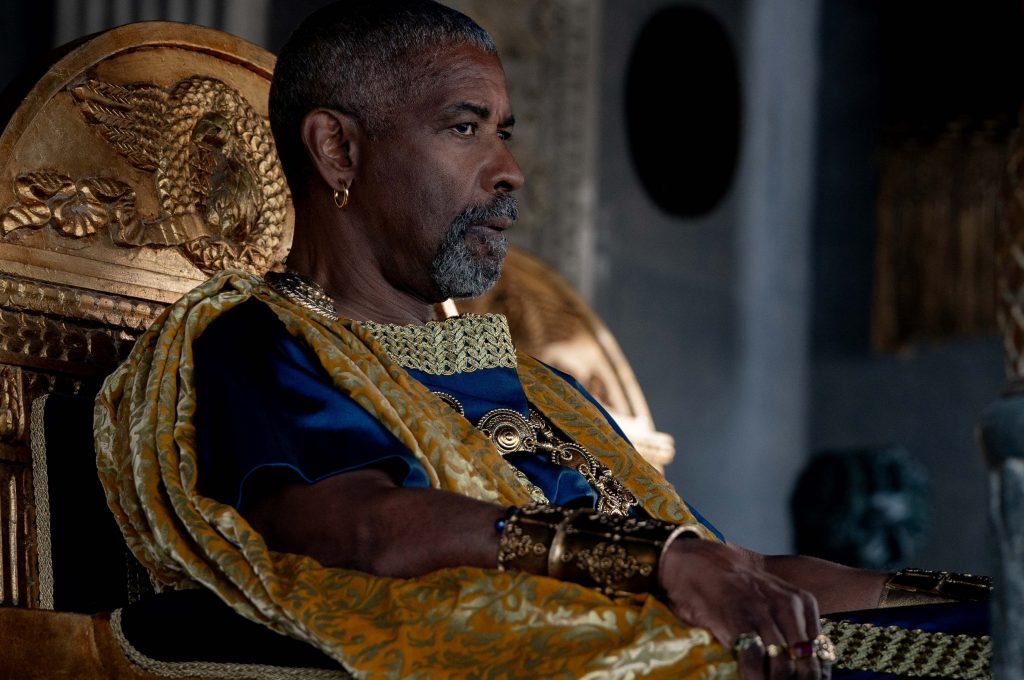
The 2000 Oscar Best Picture-winning film seemed to have a complete, finished story about a gladiator who died after killing the corrupt emperor. But with nostalgia continously poisoning our appreciation of the present, Scott tricked us into riding the time travel machine and expose how the past, just like the present, is plagued by corruption, betrayal, and ridiculous clinging and obsessing over power. We definitely won’t overlook those values because of the film’s gory scenes that made me gasp and cover my mouth out of shock.
No one in their right mind will say the sequel one-upped its predecessor. Aside from extending the story in Rome, Scott, obviously, has another set of goals: Suspend historical accuracies and showcase Hollywood’s campy formalism style. Turning the Colosseum into a water battleground with sharks? Hell yeah. Visually-detailed decapitation of an enemy? I felt the blood spraying on my face. Be gory! Be camp! Be everything! Aren’t we not entertained? Hollywood, baby!
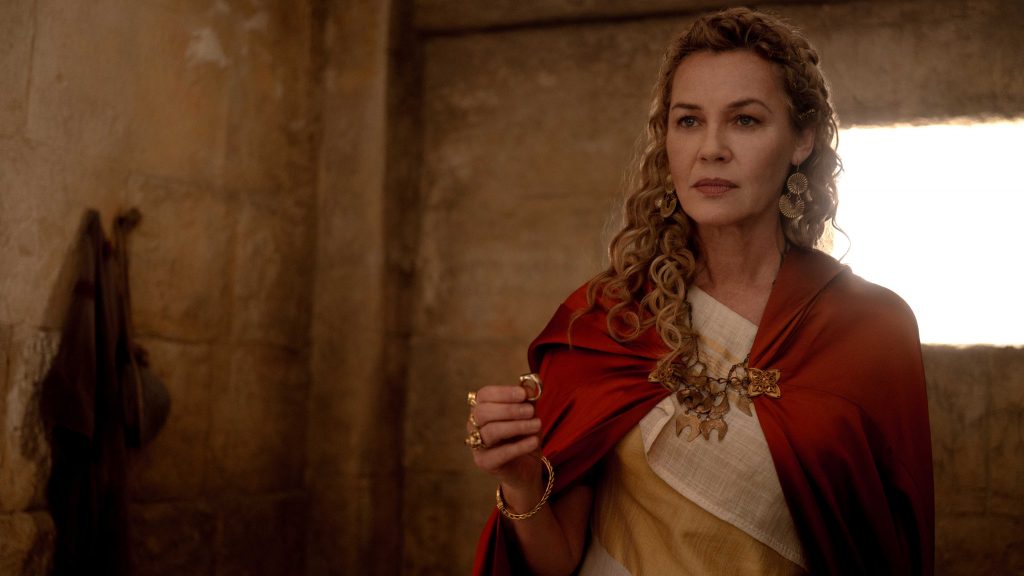
And as part of the recent trend in Scott’s films, Gladiator II is like a chop suey of performances: Quinn and Hechinger’s campy, drag performer-like portrayal of the mad emperor siblings, returning cast member Connie Nielsen as the reserved and melancholic Lucilla, Pascal’s tough but sympathetic General Acacius, and Denzel Washington’s scene-stealing, not-so-period-drama performance as Macrinus, the former slave and manager of Lucius. Critics were hailing the veteran Washington as the real star of the film, with some even wishing the film was focused on him over Mescal. While Washington’s acting style here is an atchara, it’s hard to see Macrinus when I am clearly seeing Alonzo Harris from Training Day draped in ancient clothing in Rome.
Speaking of Mescal, I have been a fan of the young Irish actor since Normal People. Mescal is a gentle giant who looks like he can cradle you with his arms while you cry and listen to some indie record. I fell in love with him because of his sweet, reserved, and intimate acting style showcased and critically acclaimed in projects like All of Us Strangers and Aftersun, in which he got an Oscar Best Actor nomination. He always capture the themes and values nestling his projects, especially in Aftersun in which he played as a young father juggling his paternal duty and his mental health struggles internally. The constant conflict between his pessimistic self and his loving paternal self made him the movie itself. In Gladiator II, he’s a bearded, muscle-pumping, tough man seeking revenge for the death of his wife. While he entertains the Roman crowd and the cinema audience, his talent of intimately connecting the audience to his character was eclipsed by Scott’s priority in spectacles. The movie captured him, not the other way around that previously benefitted the Irish actor. I hope the cheques were worth it, though. And I hope this project will lead the audience to Mescal’s previous extraordinary works.
Gladiator II is now in cinemas nationwide.
